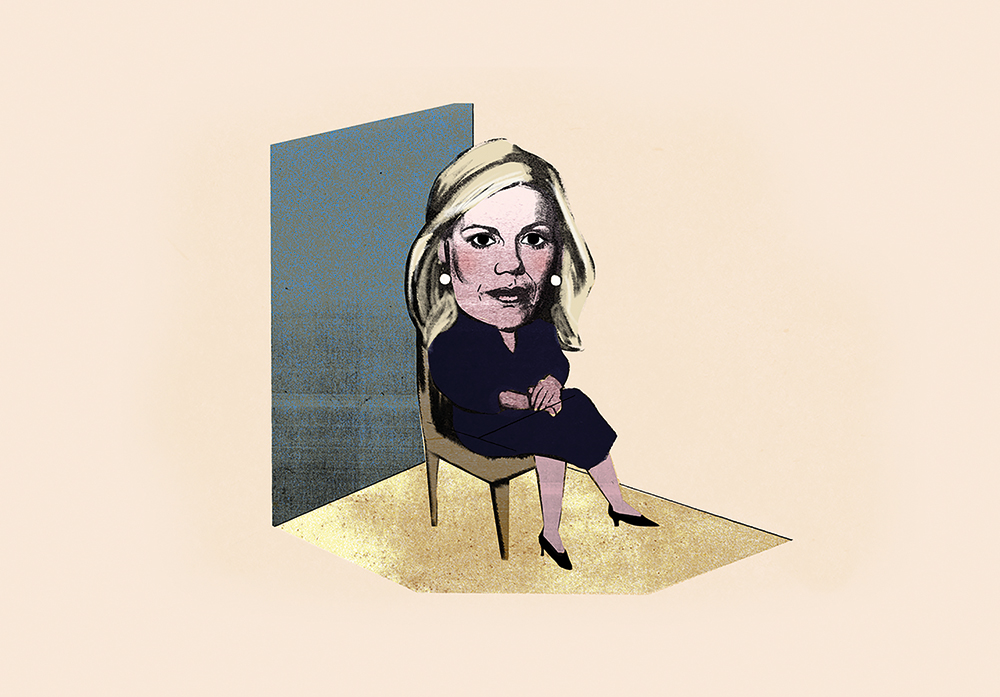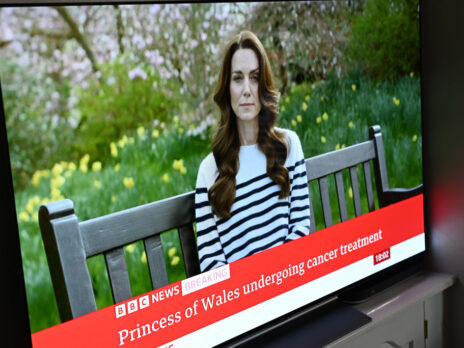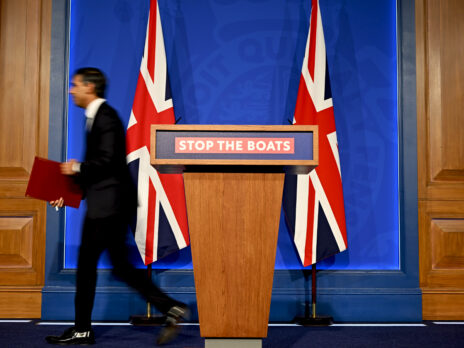
In September 2019, Miriam Cates, then the Conservative candidate for Penistone and Stocksbridge in South Yorkshire, uploaded a video to her YouTube channel. Over its two minute run-time, Cates, a former secondary school biology teacher, and a reassuringly ordinary presence with a cheerful-warm northern voice that could narrate a Hovis advert, set out what she would do for her constituents. More investment in education, “our amazing NHS” and transport. She was standing as a Conservative because she wanted “freedom and opportunities for all”. She would “empower local people”.
At the 2019 general election, Cates overturned Labour’s majority in the seat, and became the first Tory MP in South Yorkshire since 1992. Across the so-called Red Wall in the north of England Labour strongholds fell to the Tories, who promised to use the power of the state to enrich neglected voters who felt ignored and disrespected.
A victorious Boris Johnson had, according to Blue Labour thinker Maurice Glasman, “renewed his party for a generation and ripped into the Labour heartlands by aligning Brexit with national renewal”. The future belonged to Johnson and this new big-state Toryism, and it was the unlikely Red Wall MPs, such as Cates, who symbolised the realignment.
Entering parliament was a “massive change”, Cates told me when we met in Westminster recently. She had only been a Conservative Party member for 20 months when “after a sequence of fairly good opportunities” she became an MP. Just over four years later, in October 2023, Cates, a 41 year-old mother of three, delivered the opening address at the Alliance for Responsible Citizenship (ARC) conference held in Greenwich, London. By then everything had changed. Johnson was no longer prime minister – he now wrote columns for the Daily Mail about chorizo, among other essential topics. Polling that month showed that every Red Wall MP, including Cates, was set to lose their seat at the next general election. Rishi Sunak, the Prime Minister, was more interested in potential tax cuts than the 2019 “levelling-up” agenda. So much so that the Financial Times could celebrate “the welcome demise of big-government Toryism”. The realignment was over before it began.
Cates appeared to have transformed as fast as her party had. Addressing an audience of right-wing think-tankers and politicians at the ARC, Cates, who writes occasional columns in the Telegraph, gloomily outlined all the reasons why Western civilisation was in freefall. Decline, she declared, came “from within, from the fraying of our social fabric”. The citizens of the West were “heading for a future of economic stagnation and destabilising mass migration”. Our societies were “eroding” and “shrinking” and “shattering” and “unravelling”. To save the West would require restoring something Cates, an evangelical Christian, called “the Good, the True and the Beautiful”.
The speech was bold. Gone were the particular, local, almost bland appeals she had made to her constituents as a new MP in 2019. Now her concerns were cosmic. She sounded like Jordan Peterson. Her enemies were not slow buses in her constituency, but manifold apocalyptic threats to “the future existence of our society”.
The veteran Labour thinker Jonathan Rutherford sees Cates as “blue collar”, a politician “more for society than the market”. (A Tory source agreed. They called Cates “Everywoman… She represents ordinary interests, typically those of a working mother of three.”) “Miriam and I have absolutely nothing in common in terms of Brexit and immigration,” said the Canterbury MP Rosie Duffield, who has worked with Cates several times. “But what we have in common is a fundamental belief in women’s rights to fight for our biological rights and for safeguarding children.” Duffield admires Cates’ sense of humour, and her “formidable” skill at campaigning.
This was less on display at the ARC. It was as if Cates had spent the four years since December 2019 locked in a room seancing with Oswald Spengler, and emerged to announce the downfall of the West. It was difficult to see the exact relationship between “the Good, the True and the Beautiful” and Penistone and Stockbridge. Or perhaps it was inevitable that Cates, who grew up wanting to be a concert pianist in a Christian household in Sheffield, where her father was a GP and her mother a housewife, would bring her faith into her politics. Conservatism in Britain was more fractious and zealous than when the party came to power in 2010. By 2024 it was more like a squabbling, splitting religious congregation than a political party. Was there anyone who embodied that shift more than Miriam Cates? What had happened to her since 2019?
“I don’t think I’ve changed”, Cates said, as we settled down on the squashed green sofas of her parliamentary office in Westminster’s dismal Richmond Building. She shared the room with her close political ally and fellow chair of the New Conservative group, the Devizes MP Danny Kruger. The New Conservatives is one of several turbulent micro-factions in the Tory parliamentary party. It was founded by Cates and Kruger to return the party to the pledges of the 2019 manifesto. The main concern of its 25 members is immigration. Elected to oversee a decline in numbers of illegal and legal migrants, the Tories have instead presided over a surge in non-EU migration since 2019. Cates called it a “democratic question”. If a Conservative government with an 80-seat majority could not bring the numbers down, who could? “People’s patience is wearing thin,” she said.
Boxes of tea, bags, stacks of papers and books were strewn around the place. A portrait of Roger Scruton, head down, intensely concentrating and glowing with saintly yellow light, rested above the fireplace next to a map of the 2019 general election results.
Sitting with us was a pale man with a fringe of long black hair who looked like an adult version of the child from The Omen. During our conversation the man, who worked for the Free Speech Union, was quiet. Every so often, he would rustle noticeably in his chair, as if communicating in code with Cates.
Since she entered parliament, Cates has developed a remarkable ability to draw attention to the issues she cares about. Whether it is calling for a surrogate-baby ban or for Britain to leave the European Convention on Human Rights (ECHR), criticising no-fault divorce or trying (unsuccessfully) to stop the extension of the pandemic policy of prescribing pregnancy-terminating drugs without a consultation, Cates attracts criticism, and controversy follows. She thinks “the media is very nervous of anyone with strong convictions”, particularly Christian convictions. As with Tim Farron and the SNP MSP Kate Forbes, attacks on Cates feel unusually bitter – the Guardian sketch writer John Crace has called her both “formidably dim” and “delusional” – perhaps because, like Farron and Forbes, Cates is a devout Christian. She does not leave her beliefs or world-view at home.
When we met towards the end of January, rumours about plots to remove Rishi Sunak from office were pinging around Westminster. Names attached to these rumours included Kemi Badenoch, Liz Truss and the Tory party fixer Dougie Smith. Meanwhile, Cates’s New Conservatives group had fought a running battle with Sunak over the Rwanda Bill, which they predicted would be embarrassingly thwarted by courts in London and Strasbourg.
Earlier in the month, they had voted for amendments to the bill designed to toughen it up – excluding it from the Human Rights Act more completely; stopping it from being bogged down in individual legal claims; preventing so-called pyjama injunctions from the ECHR – and damaged the PM’s authority in the process. I asked Cates if she thought her group was still right about the bill, and Sunak was still wrong. “Well, yes, because that’s why I voted for the amendments,” she said, “but I hope, I hope he’s right.” She remained concerned that the bill, in its current state, would “not actually result in planes leaving”.
Cates, wearing an eyeball-scalding fuchsia dress and white vintage heels printed with flowers, praised the Prime Minister somewhat faintly as a “hard worker”, and later suggested “it’s not a great time to be Conservative prime minister”. She called Badenoch “great” and while there “isn’t a vacancy” at the top of the party, Cates said Badenoch should stand the next time there is. She didn’t think there was “any serious, coordinated attempt among MPs to do anything” about Sunak. I wondered whether Cates, who was one of the last-ditch Tories who defended Boris Johnson on television during his final collapse, thought it was a mistake to remove him. “I don’t know.” She shifted in her seat. She sighed. The man with black hair was leaning oddly in his chair. “I supported him until the very end.” Why?
“A lot of the people who voted for me voted for me because Boris was the leader. And he was the one they wanted as prime minister.” Cates pointed out that the Conservatives’ poll rating had been sliding ever since Johnson was zapped. Partygate led to “people in government losing their nerve about his leadership”.
If the polls are correct, Cates won’t have a job by the end of the year. She told me that “no Red Wall MP is under any illusion [about] what the polls say”. What will she do next? Has she been offered other work?
“No, I haven’t been offered any other jobs.” Cates said she had not given up hope of winning her seat, “but I’d be stupid not to think beyond that moment”. She has thought about returning to teaching, but doesn’t know whether anyone would employ her. It was a revealing comment. Far from being “dim”, Cates went to a comprehensive school where she was a straight-A student, then studied genetics at Cambridge. But her politics has put her on the far side of what many British educational institutions consider appropriate. She told me she felt less “culturally at home” at Cambridge than she does in parliament.
Cates could monetise the noise that surrounds her and become a crusading pundit. She has honed the lucrative skill of being able to irritate people on the internet. A Telegraph article she wrote last summer, which appeared under the wonderfully mad headline “Labour wants to nationalise our children”, raised a whirlwind online. But being a pundit – and there are many on the right, endlessly and impotently recycling their grievances on podcasts, in TV studios and in comment pages – does nothing to make Britain a better place.
“We have got a problem in this country with knowing what the problem is but not being able to do anything about it,” said Cates. She agreed that there was “too much whinging on the right”. For her, what matters is raising the salience of seemingly unfashionable concerns like the declining birth rates among British women, “which is going to be a massive issue in the decades to come”. Fertility is also plunging in societies that have little in common with one another: China and Iran; France and Japan; Italy and Finland. The French president, Emmanuel Macron, promised “demographic rearmament” last month, while Giorgia Meloni, the Italian prime minister, described the birth rate as a “top priority”.
Cates conceded that “nobody actually knows what the solutions are”. From a “purely biological point of view”, she believes it “makes sense to start your family younger: you’re more likely to conceive [and] you’re more likely to have a healthy pregnancy”. She was glad her “much ridiculed” attempts to raise the issue at the National Conservatism Conference in May 2023 had cut through.
The worst “cost” being an MP extracted, she said, was not seeing her children as often as she would wish. Motherhood and family are the bedrock of her politics. Cates was an adult convert to Conservatism, and even joined the Labour Party in 1997, only to abandon it later. (She talked fondly about Sheffield being a “socialist republic” in her youth.) She told me she “couldn’t have named a government adviser before 2019”. What motivates her to talk about issues such as gender identity, pornography, surrogacy and no-fault divorce is a sense that if she is missing out on time with her children, “then I sure as hell better make it count for other kids”.
Her own parliamentary colleagues often struggle to see the point of the battles Cates is fighting. What don’t they understand? She cites the “insane” free availability of hardcore pornography on the internet, beamed into boys from their smartphones, as an issue that older Conservative MPs, without teenage children, shy away from raising.
“They just don’t really believe this is happening,” said Cates. These MPs think of porn “as a dodgy magazine that the boys pass around by the bike shed”. Trying to speak to colleagues about extreme porn in the tea room, as Cates has done, has been difficult: “You know: ‘Hi, there. Hope you’re enjoying your eggs on toast, I want to talk to you about porn…’ it’s not very social, is it?”
Forty minutes into the interview, I began to wonder what the man from the Free Speech Union was doing in the room. Whenever something controversial reared up during the conversation, he leaned forward or sideways in his chair. When I asked Cates about the large number of gay Tory MPs in the parliamentary party, he moved so far forward that he was practically parallel to the floor. Cates then swerved the question.
When I asked her about her faith, which she has spoken of movingly, she kept her answers tepid, at room temperature. I never quite had the sense Cates was saying precisely what she believed. I thought, given her charismatic reputation, she might be willing to make braver statements. I also understood, given how much Cates is attacked, why she might not want to answer questions in a straightforward way in the New Statesman.
What had happened to Miriam Cates?
When she described the decline of the West, she sounded like somebody who had given up on being able to halt that decline. It is unlikely to be the Conservative Party’s job to turn Britain around in what remains of this decade. But Cates is thinking less of the past, and little of the future: “I’ve never been somebody who thinks that far ahead. I’ve got to be honest… I do very much live in the moment.”
This Tory moment was ending. She feared for the next government and the Labour Party with its “woke stuff”. A self-described “realist feminist” she saw politics as an extension of the domestic sphere. She would like the country to be more like Oughtibridge, the Yorkshire village where she lives with her husband and family. The Conservative era she belonged to – Johnsonian statism, culture war battles, the great realignment – was gone.
What comes next? After the election, Cates may not be in parliament to see the next generation of Tory MPs. But it would be no surprise if they were stridently populist. She might be gone, but her style may endure.
[See also: “Sick to death of chaos”: Iceland boss Richard Walker on leaving the Conservatives]
This article appears in the 07 Feb 2024 issue of the New Statesman, Who runs Labour?





